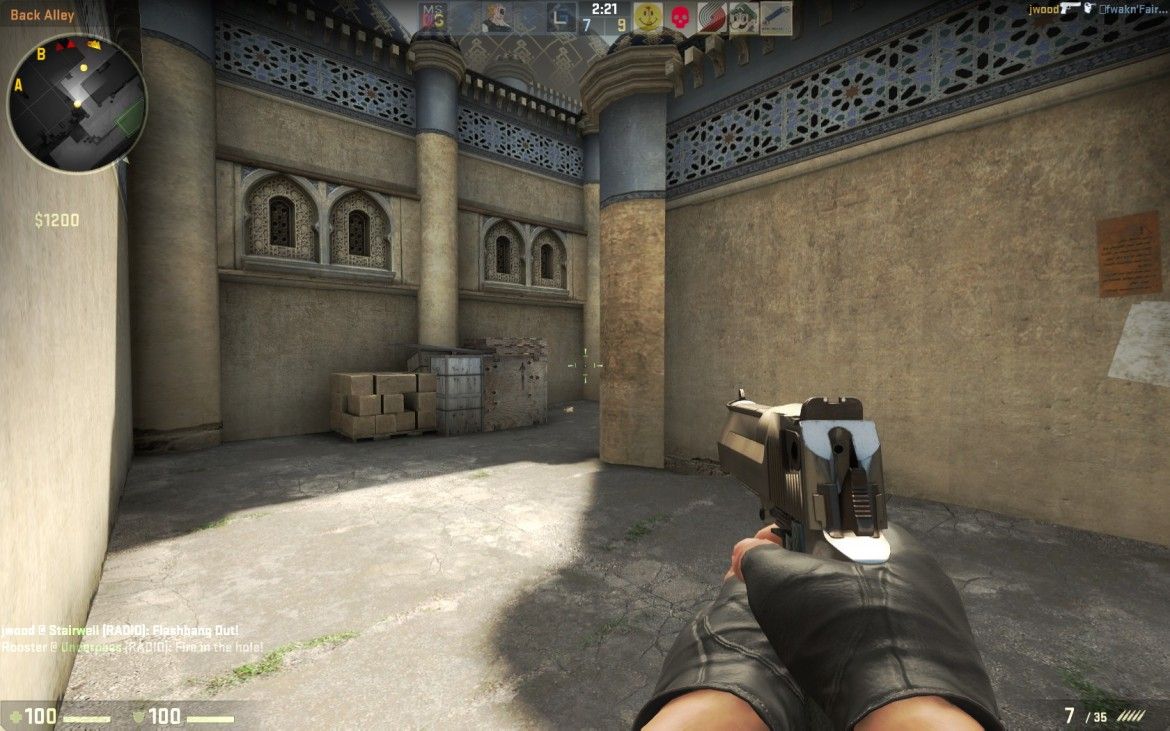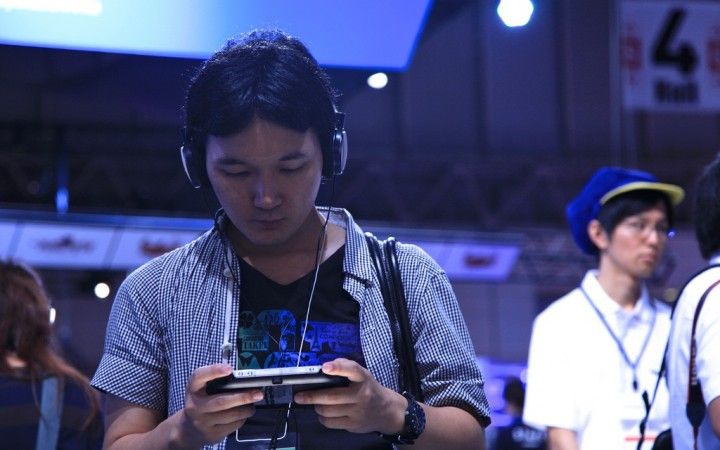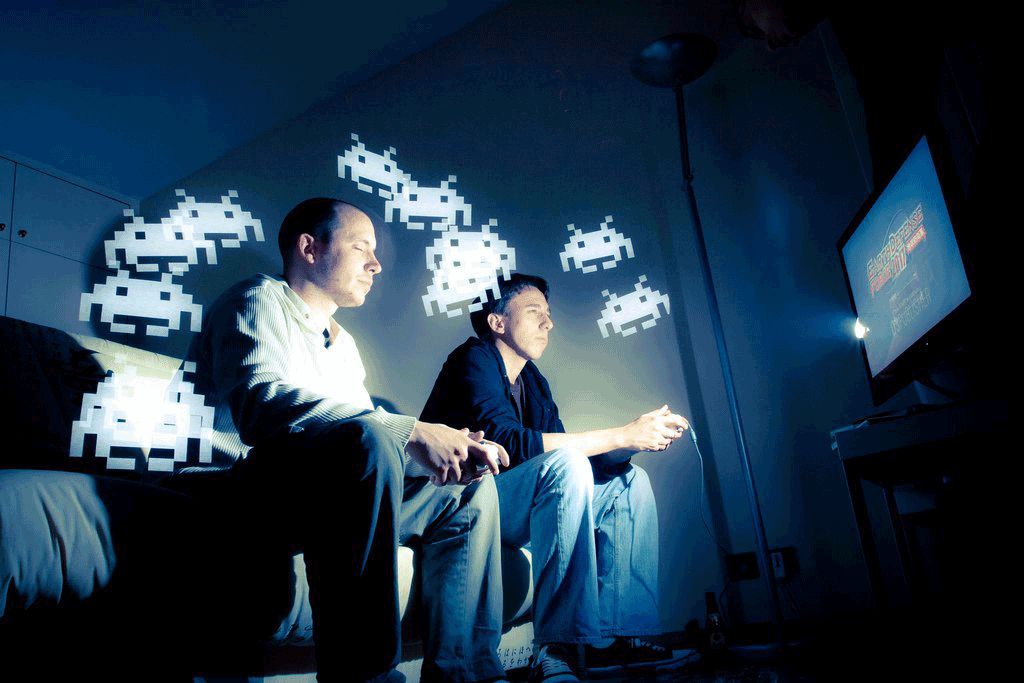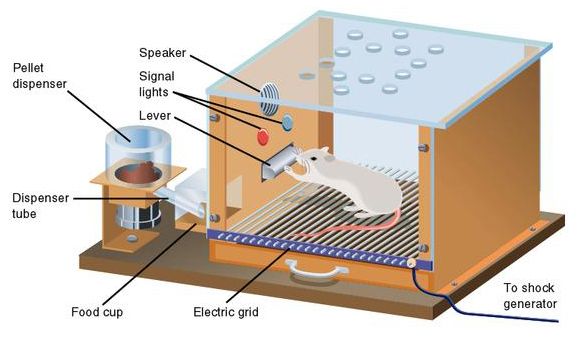You slap on your gaming headset and crack your knuckles. Warm-up is over; it’s time for round 1. The map: Dust II. A classic. You tap “B” to open the buy menu and select the “Pistol” category. There, in all its oversized, chromed glory: the Desert Eagle—a steal at $700. Your plan: dominate the pistol round with shock and awe. The clock winds down as you confer with your teammates. Do you go for A site or B site? 3..2..1…A site it is. They will never see it coming.
 Don’t be “that guy” who buys the Deagle every round.
Don’t be “that guy” who buys the Deagle every round.
With your hand cannon at the ready, you storm A doors. You know a counter-terrorist or two might wait for you in pit, but it’s pistol round. The majority of the enemy team probably went to B site. And you reason they stuck with the USP because, hell, who doesn’t like popping heads? This means they have body armor, but no grenades. As you reach the second door, you leap for the cover of the inexplicably enormous blue dumpster.
You peek. Steady now. You heft the hand cannon. One down. Two. Your teammates are right behind you, and within fifteen seconds, you’ve taken A site and planted the bomb. Now it’s five versus three, and the counter-terrorists will have to come to you. The round is almost certainly yours.
Briefly, you become aware of your hand on the mouse, the tension in your toes as you mash them into the floor, your shallow breathing. Then someone makes a callout, and like the crack of a whip, you’re sucked back in. You’re in the nook behind boxes the vets call “Goose.” You have a good view of pit, but catwalk might as well be the Andromeda galaxy. Not good. You must peek.
You reload your Desert Eagle. Sure enough, one of your teammates calls catwalk.

“Are you going to take the trash out?” You jerk, leering up at the person in the doorway.
In game, your teammates scream as you take lead from a candy apple red Five SeveN named, “Dick Remover.” The counter-terrorist who just removed your Johnson leaps, discharging the Five SeveN at your teammates. It’s a collective penectomy. RIP pistol round. Your eyes fall to the bottom left-hand side of the screen, and sure enough, in little orange text is a message from Mr. Candy-Apple Red: “Noob. Uninstall.”
You curse. But not at your teammates, and not at the counter-terrorists, either.
Has this ever happened to you? Maybe Counter Strike: Global Offensive isn’t your bag of limes. Maybe you play Dota 2, Super Hot, or Eve Online. I don’t know, I’m just the author. If I had that kind of extra-sensory perception, I wouldn’t be sitting here writing an article about video games. Before we get into the meat of this article, let me be clear about this: video games have real benefits to offer. The question you have to ask is, do these benefits outweigh the potential negatives?
More Aggressive Thoughts
If you spend hours on end in a place like New Vegas or Vice City, your thought processes might darken a bit. This is normal. After all, your brain is a dynamic biological computer. When you focus on something, you strengthen the related neural pathway. Because aggression is hard-wired deep in the brain, playing video games that emulate violence can lead you to think more aggressive thoughts than you otherwise would. In their paper, Violent Video Games and Hostile Expectations: A Test of the General Aggression Model, Brad J. Bushman and Craig A. Anderson concludes that playing violent video games can affect how we perceive interpersonal scenarios.
In other words, playing violent video games can make you misinterpret the intentions of others. For most people this isn’t an issue. For some, though, it can make them act more aggressively than they ordinarily would. Naturally, though, everyone reacts to video games differently.
Poor Performance
According to the paper, The effects of violent video game habits on adolescent hostility, aggressive behaviors, and school performance by Douglas A. Gentile, video games can stunt social skills and lead to poorer scholastic performance. It isn’t too much of a stretch to assume then that video game consumption could hurt job performance. For entrepreneurs, the effects could be even worse. Starting and growing a business requires an iron will and steadfast focus. Video games that aim to be as addictive as possible—every video game ever—demand vital mental resources.
Social Isolation
The research on this one is mixed. Some individuals find games like CS:GO a comforting break from the social pressures of everyday life. After all, everyone on the team shares the same goal—unless your teammates are stinky trolls. Otherwise, unless you get paired up with the feared “try hard” player or you under-perform, the social banter can be uplifting. For some, though, games like CS:GO might be their main source of social interaction. Clearly, this can’t be very healthy. If you retreat into a virtual battleground to “hang out” with your “friends” night after night, you might want to go bowling—or something— with some flesh and blood buddies. We don’t judge, though.
The Very Real Risk of Addiction
Any behavior that stimulates the pleasure circuit of the brain can become addictive. That’s right, “virtual weed” is a real phenomenon. And while habitual behaviors don’t alter the brain as much as physical drugs do, you can experience similar withdrawal symptoms when you try to stop. ‘But how can video games be addictive,’ I hear you asking, somewhat defensively…well, here is the thing: game developers design their games to be as addictive as possible. Are you surprised? Addictive qualities are built right in. Don’t take my word for it. Here is a quote from John Hopson, former game designer for Microsoft:
“Each contingency is an arrangement of time, activity, and reward, and there are an infinite number of ways these elements can be combined to produce the pattern of activity you want from your players.”
Video game designers rely on a behavior model known colloquially as the “Skinner box.” Created by a dude named B. F. Skinner—isn’t that the principle from The Simpsons?—in the 1930s, its real, somewhat less fluid name is ‘operant conditioning chamber.’ Skinner’s research showed that you could compel animals to do what you want them to do by providing rewards at regular intervals.
Credit: Simply Psychology
These are the aforementioned contingencies. With a lab rat, this might mean giving it a reward pellet when it presses a lever. The rat’s brain creates an association between the action and the reward. The extra food triggers the reward pathway of the rat’s brain, compelling it to pull the lever as often as possible.
Skinner referred to this conditioning as ‘operant reinforcement.’ Human brains are—almost—infinitely more complex than those of rats, but we’re still susceptible to this phenomenon. In games like CS:GO, it manifests as the quest to level up. New CS:GO players will tell you with gritted teeth about “Silver Hell.” This refers to a player’s struggle to get out of the lowest rank in the game. Silvers the world over dedicate dozens or hundreds of hours to this quest partly because, in the CS:GO community, being a Silver is a badge of noobishness.
Another way that operant reinforcement rears its head is through attachment to virtual items. Let’s look at CS:GO again. In this game, you can pay real-world money for gun skins. You can pay more money for StatTrak™ guns. These weapons track your in-game kills. Then, if you wish, you can pay a further $2 to name your gun.
Cool, right?
You might or might not think so, but Valve thinks it’s pretty cool. When CS:GO gamers are attached to their guns, they play more. When they play more, they’re more likely to recruit their friends to the game and to encourage their friends to spend real-world money like they did.
Note: I’m not saying that CS:GO players are addicts!
But I’m sure there are gamers who are addicted to the games they play. Let’s look at some of the warning signs of video game addiction:
Emotional symptoms:
• Feelings of restlessness
• Obsessive thoughts
• Irritability when you can’t play
• Obsessing about performance or previous game play sessions
• Lying to friends or family about how much you play
• Avoiding interactions with people who don’t play your game of choice
Physical symptoms:
• Fatigue
• Migraines
• Eye strain
• Carpel tunnel syndrome
• Poor personal hygiene
Effects of Video Game Addiction

Like any compulsive behavior, video game addiction can have a huge impact on your life. Most of the symptoms above have short-term effects, but they can lead to chronic conditions. For instance, if you sit for several hours a day, your chances of dying from any disease greatly increase. But video game addiction also has a strong impact on sleeping habits. Sleep deprivation will melt your ability to focus and will increase irritability. It can create a negative feedback loop that can chip away at your quality of life. You might miss important family gatherings like weddings, funerals and reunions. You might beg off from hanging out with your friends. Over time, people will stop inviting you because they’ll assume you aren’t interested.
Related Post: Playing Video Games – The Surprising Benefits
What’s your take? Do you think video game addiction is a thing? Let us know in the comment’s section below!
This is a Contributor Post. Opinions expressed here are opinions of the Contributor. Influencive does not endorse or review brands mentioned; does not and cannot investigate relationships with brands, products, and people mentioned and is up to the Contributor to disclose. Contributors, amongst other accounts and articles may be professional fee-based.



